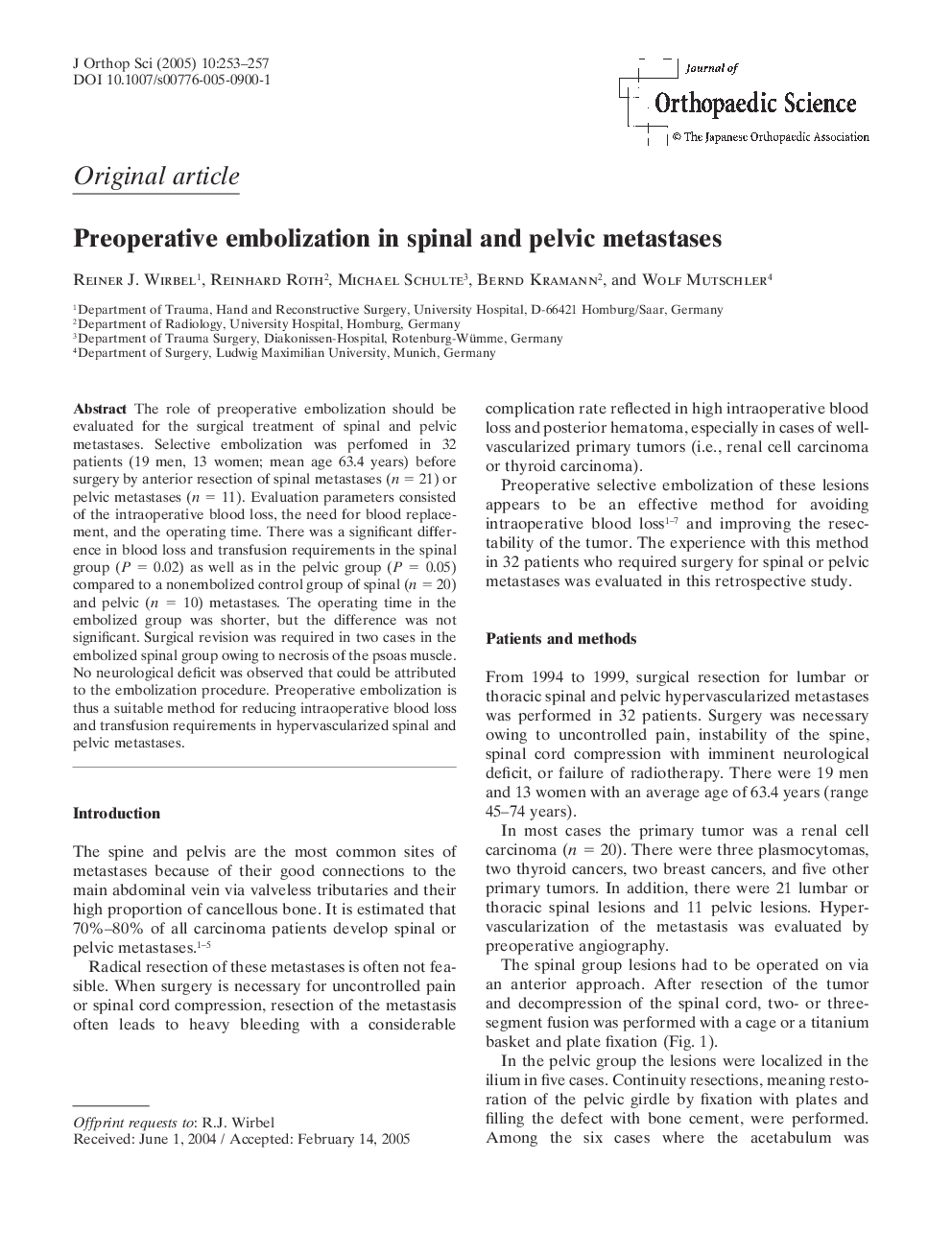| Article ID | Journal | Published Year | Pages | File Type |
|---|---|---|---|---|
| 9354834 | Journal of Orthopaedic Science | 2005 | 5 Pages |
Abstract
The role of preoperative embolization should be evaluated for the surgical treatment of spinal and pelvic metastases. Selective embolization was perfomed in 32 patients (19 men, 13 women; mean age 63.4 years) before surgery by anterior resection of spinal metastases (n = 21) or pelvic metastases (n = 11). Evaluation parameters consisted of the intraoperative blood loss, the need for blood replacement, and the operating time. There was a significant difference in blood loss and transfusion requirements in the spinal group (P = 0.02) as well as in the pelvic group (P = 0.05) compared to a nonembolized control group of spinal (n = 20) and pelvic (n = 10) metastases. The operating time in the embolized group was shorter, but the difference was not significant. Surgical revision was required in two cases in the embolized spinal group owing to necrosis of the psoas muscle. No neurological deficit was observed that could be attributed to the embolization procedure. Preoperative embolization is thus a suitable method for reducing intraoperative blood loss and transfusion requirements in hypervascularized spinal and pelvic metastases.
Related Topics
Health Sciences
Medicine and Dentistry
Orthopedics, Sports Medicine and Rehabilitation
Authors
Reiner J. Wirbel, Reinhard Roth, Michael Schulte, Bernd Kramann, Wolf Mutschler,
